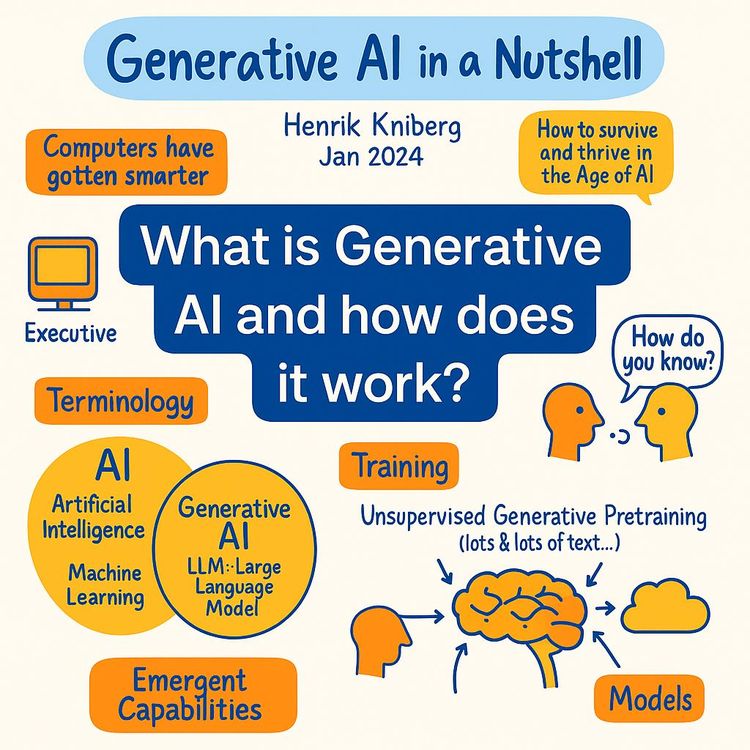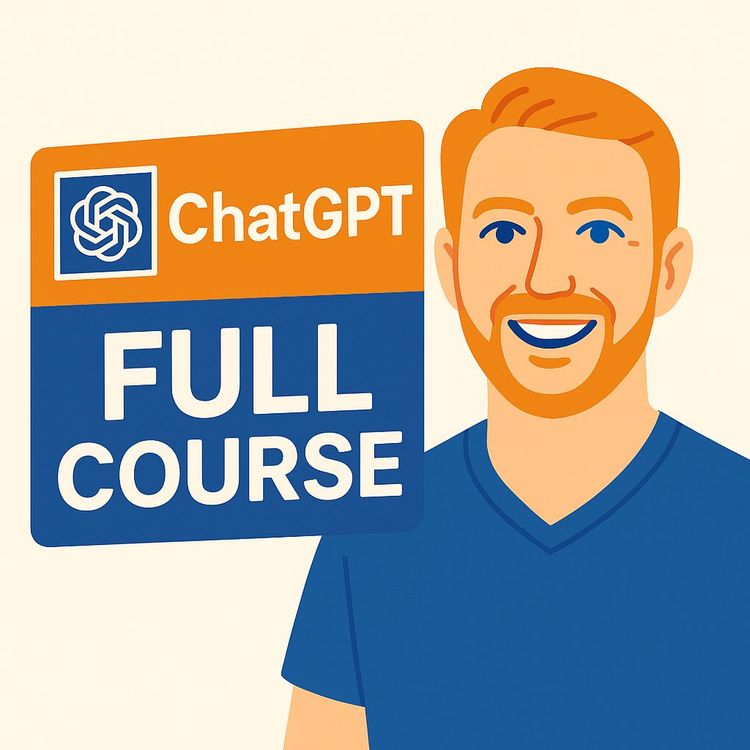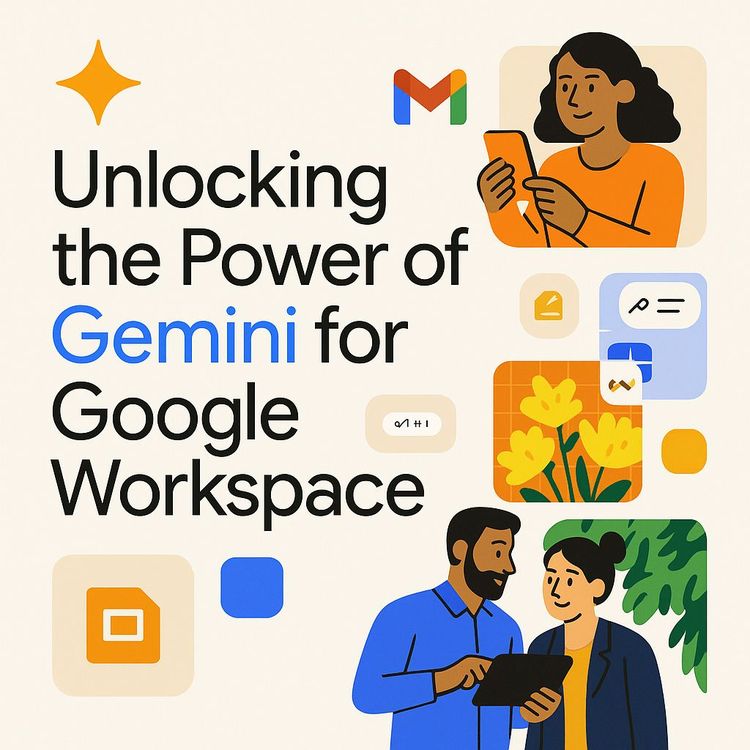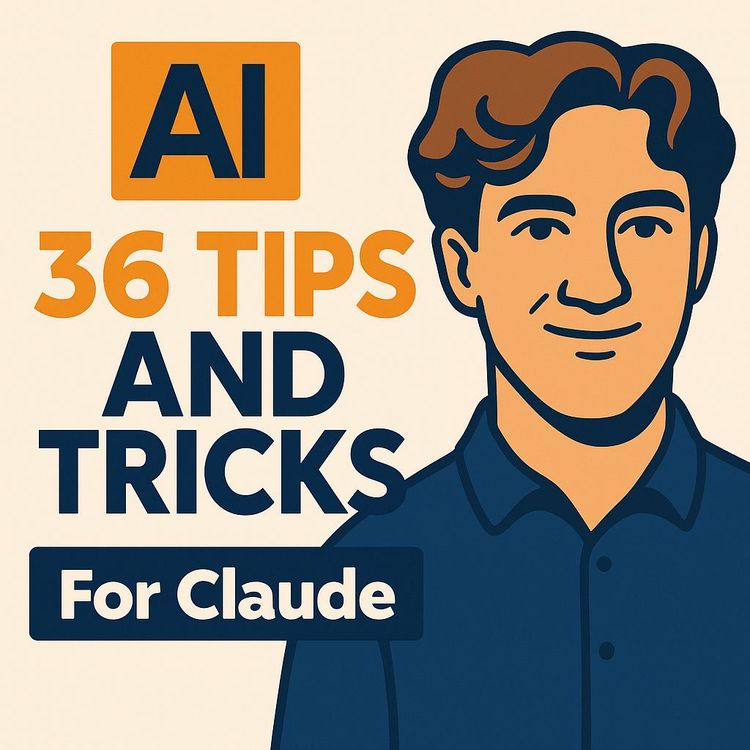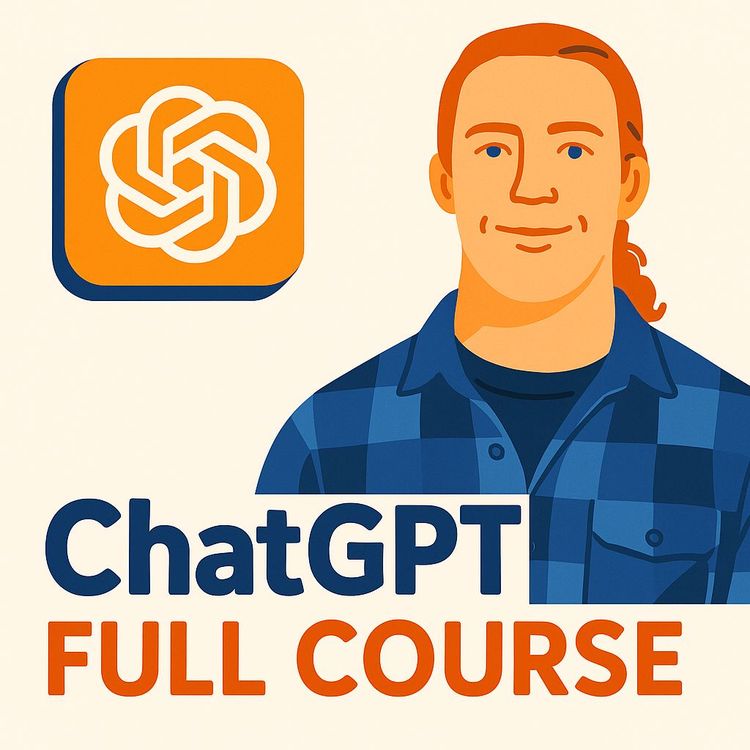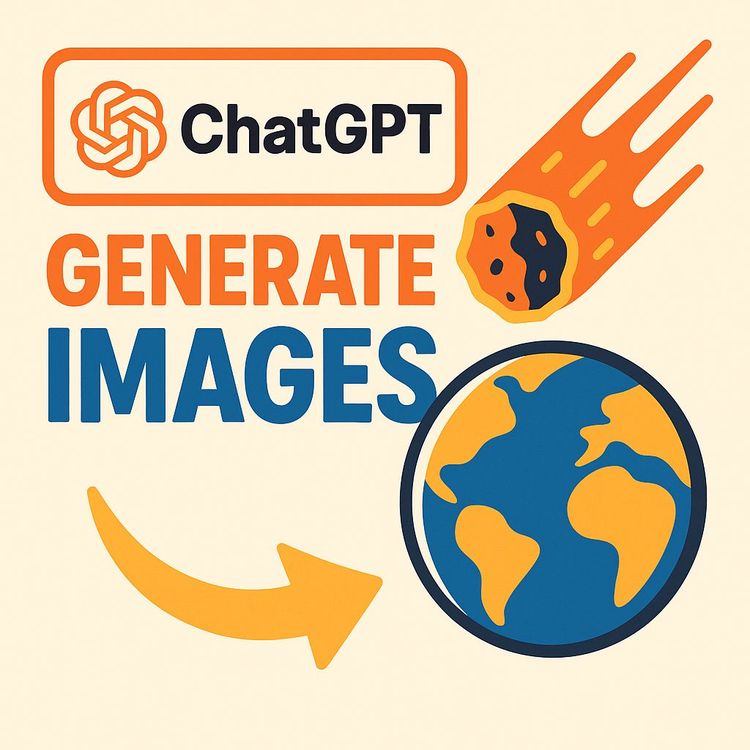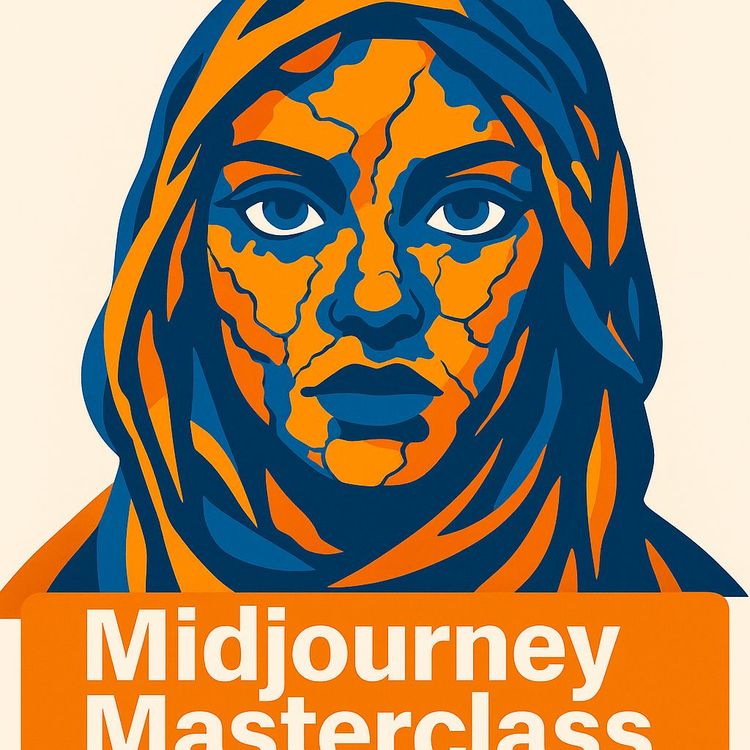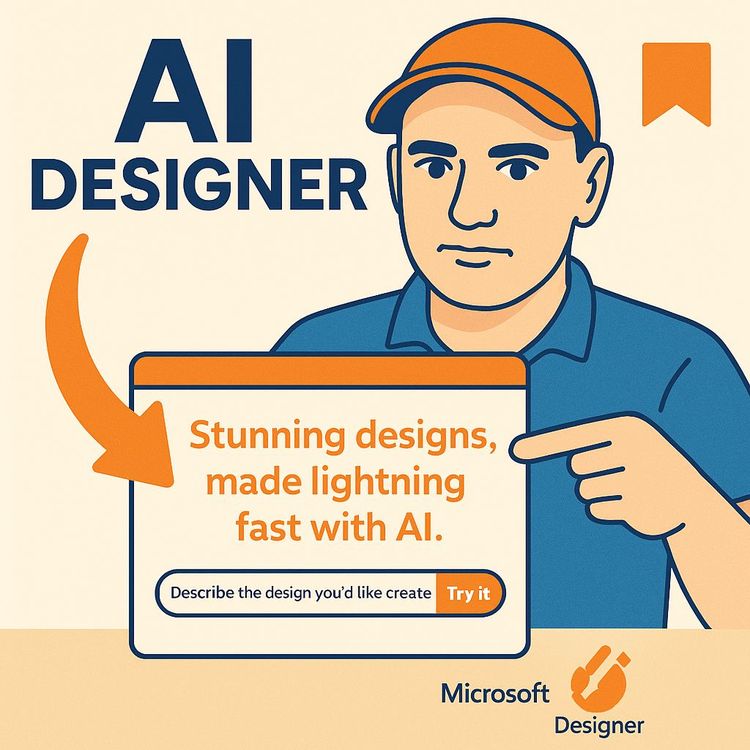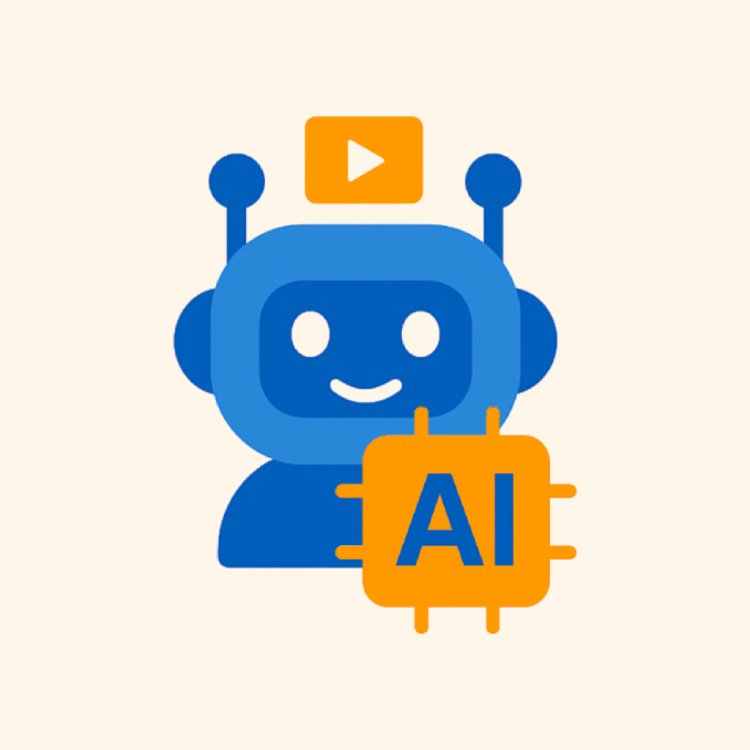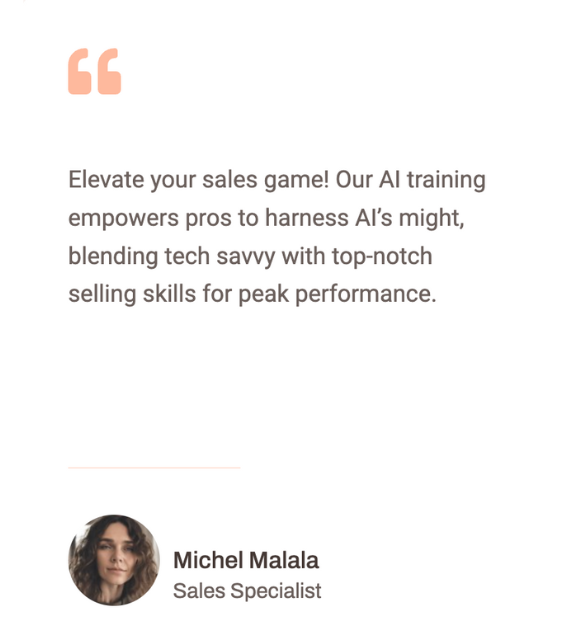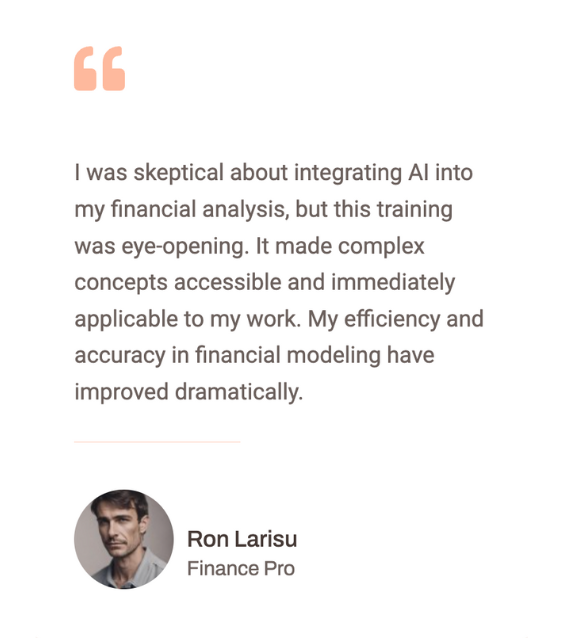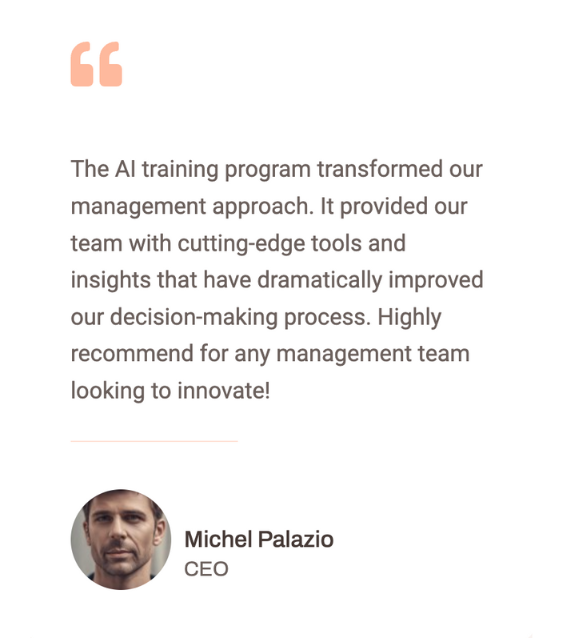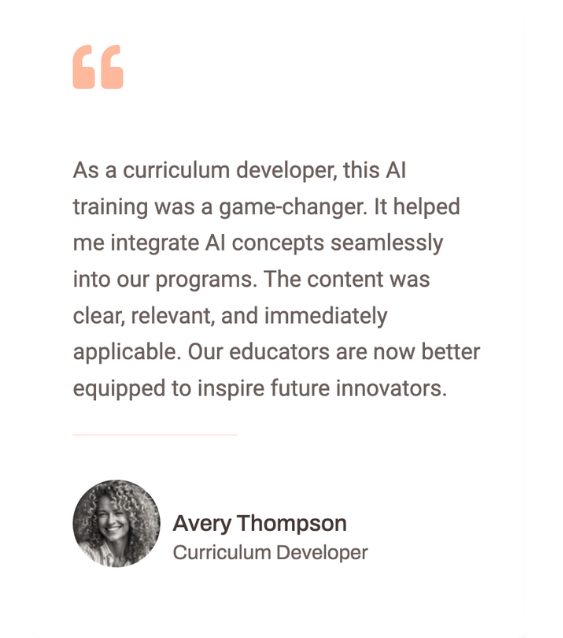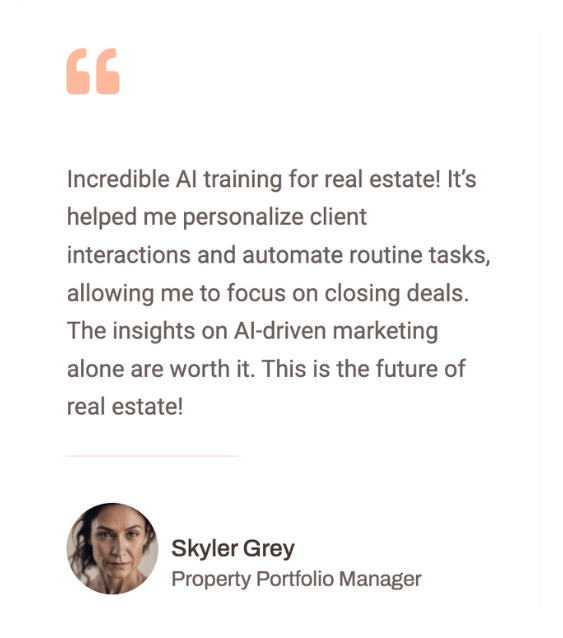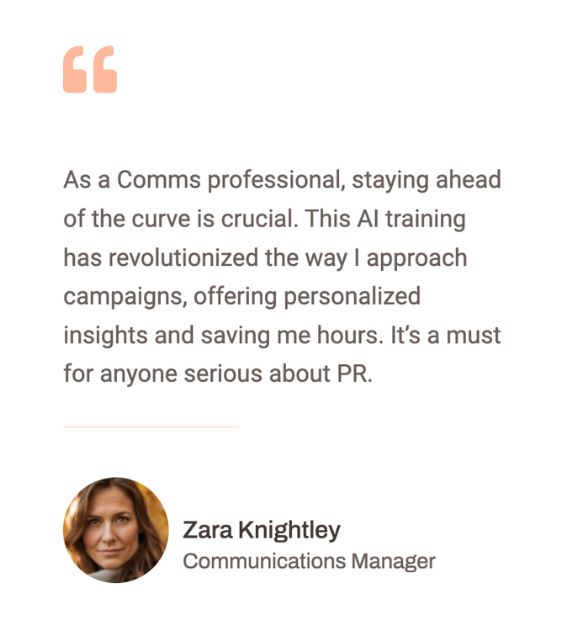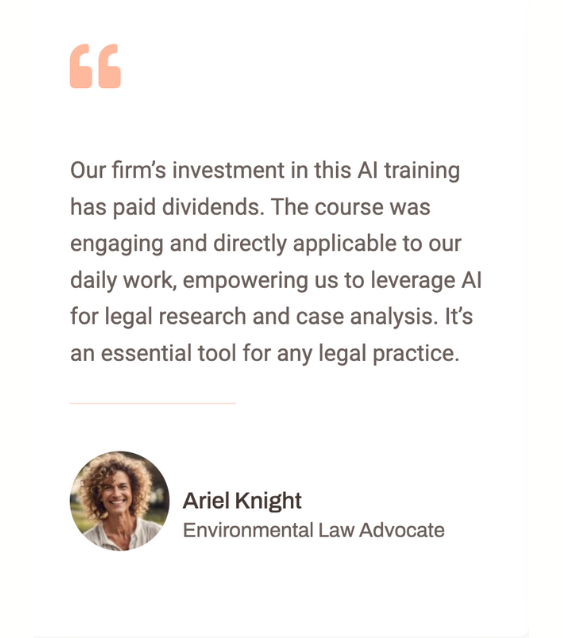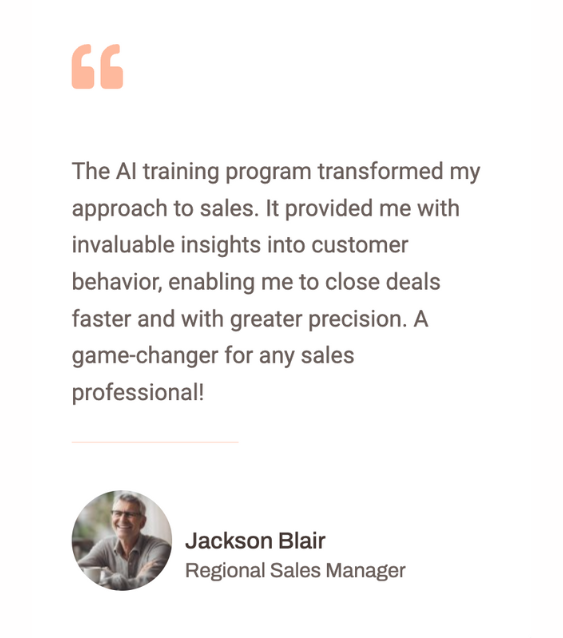Video Course: Generative AI for HR
Discover the future of HR with our "Generative AI for HR" course. Dive into how AI is transforming recruitment, employee management, and strategic planning. Gain insights and practical skills to harness AI, enhancing decision-making and employee experiences.
Related Certification: Certification: Generative AI Skills for HR Transformation and Talent Management
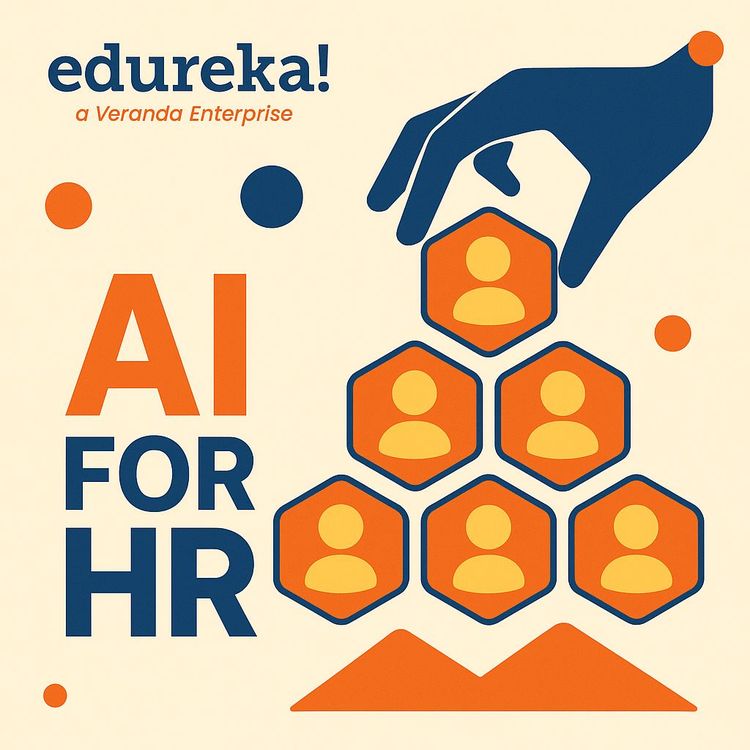
Also includes Access to All:
What You Will Learn
- Fundamentals of generative AI and ChatGPT for HR
- AI-driven recruitment: sourcing, screening and candidate engagement
- Personalising onboarding, learning and employee experience with AI
- People analytics and predictive workforce planning
- Ethical, privacy and upskilling considerations for HR adoption
Study Guide
Introduction to Generative AI for HR
Welcome to the course on Generative AI for HR. This course is designed to provide a comprehensive understanding of how Artificial Intelligence (AI) is revolutionizing the Human Resources (HR) landscape. AI is not just a buzzword; it is a transformative force that is reshaping the way HR professionals work. From recruitment to employee management, AI offers tools and insights that can enhance decision-making, streamline processes, and create a more personalized employee experience. By the end of this course, you will have a thorough understanding of AI's applications in HR and how to leverage these technologies effectively.
AI as a Transformative Force in HR
AI is rapidly becoming an integral part of HR, providing data-driven insights that help tailor employee experiences to individual needs. Imagine a world where HR decisions are made with precision and efficiency, backed by comprehensive data analysis. AI enables HR professionals to move beyond traditional methods and embrace a future where technology augments human capabilities. By analyzing vast amounts of data, AI can provide insights that were previously inaccessible, making HR not just reactive but proactive.
Example 1:
Consider the recruitment process. Traditionally, it involved sifting through stacks of resumes, a time-consuming task prone to human error. With AI, this process is streamlined. AI can screen and rank candidates based on specific requirements, saving countless hours and ensuring that the best candidates are identified quickly.
Example 2:
In employee management, AI-powered chatbots can handle routine queries, freeing up HR professionals to focus on more strategic tasks. This not only improves efficiency but also enhances the employee experience by providing instant support and answers.
The Evolving Role of HR Professionals
HR professionals have always been the backbone of any organization, responsible for attracting, retaining, and developing human capital. Their roles are evolving with the advent of AI, as they become more strategic partners in the organization. AI tools enhance their ability to make informed decisions, allowing them to focus on strategic initiatives rather than routine tasks.
Example 1:
In performance management, AI can analyze performance data to provide personalized feedback and development recommendations. This allows HR professionals to focus on coaching and development rather than data analysis.
Example 2:
AI can also assist in identifying and nurturing high-potential employees by analyzing data on employee performance and engagement. This helps HR professionals to focus on developing future leaders within the organization.
Key Areas of AI Impact in HR
Employee Experience
AI personalizes the employee experience by analyzing data on employee preferences and behaviors. Chatbots and virtual assistants provide quick support and answers to common queries, while Robotic Process Automation (RPA) streamlines routine tasks like documentation and approvals.
Example 1:
AI can analyze employee engagement surveys to identify trends and areas for improvement, allowing HR to tailor initiatives that enhance the work environment.
Example 2:
Virtual assistants can guide employees through benefits enrollment, ensuring they understand their options and make informed decisions.
Recruitment
AI revolutionizes recruitment by sourcing and screening candidates through resume analysis and social media profiles. AI-powered chatbots engage candidates 24/7, and game-based assessments evaluate soft skills and job fit.
Example 1:
AI can analyze job descriptions and candidate profiles to identify the best matches, reducing bias and increasing diversity in hiring.
Example 2:
Game-based assessments provide a more engaging and accurate measure of a candidate's skills, offering insights that traditional methods might miss.
Learning and Development
AI creates personalized learning paths based on an individual's skills, role, and career goals. Virtual and augmented reality offer immersive training experiences, while AI tutors adapt teaching methods to individual learning styles.
Example 1:
AI can recommend courses and training programs tailored to an employee's career aspirations, ensuring continuous development and engagement.
Example 2:
Virtual reality simulations offer hands-on experience in a safe environment, enhancing learning and retention.
People Analytics
AI analyzes data from multiple sources to identify trends and patterns. Predictive analytics forecasts risks and recommends retention strategies, optimizing workforce planning and modeling different scenarios.
Example 1:
AI can predict employee turnover by analyzing factors such as engagement, performance, and external market conditions, allowing HR to implement proactive retention strategies.
Example 2:
Workforce planning is enhanced by AI's ability to model different scenarios, helping HR to allocate resources effectively and prepare for future needs.
Practical Implementation of AI in HR
Recruitment
AI screens and ranks candidates based on requirements, saving countless hours and ensuring a more efficient recruitment process.
Example 1:
Automated resume screening reduces the time spent on initial candidate reviews, allowing recruiters to focus on interviewing and assessing top candidates.
Example 2:
AI-driven chatbots engage candidates throughout the recruitment process, providing updates and answering questions, enhancing the candidate experience.
Onboarding
AI personalizes onboarding programs based on a new hire's role, background, and learning experiences, ensuring a smoother transition into the organization.
Example 1:
AI can create customized onboarding schedules that align with a new hire's skills and responsibilities, accelerating their integration into the team.
Example 2:
Interactive onboarding platforms powered by AI provide new hires with the resources and support they need to succeed from day one.
Performance Management
AI analyzes performance data to provide personalized feedback and development recommendations, helping employees to reach their full potential.
Example 1:
AI-driven performance reviews offer objective insights into an employee's strengths and areas for improvement, fostering a culture of continuous development.
Example 2:
Real-time performance analytics allow managers to adjust goals and support employees in achieving their objectives more effectively.
Employee Management
AI-powered chatbots answer common HR queries, freeing up HR professionals to focus on strategic tasks.
Example 1:
Chatbots can provide instant answers to questions about company policies, benefits, and procedures, improving employee satisfaction and reducing wait times.
Example 2:
AI can monitor employee sentiment through feedback and surveys, alerting HR to potential issues before they escalate.
Benefits of AI in HR
Efficiency
AI automates time-consuming tasks, freeing up HR professionals for more strategic initiatives. Say goodbye to stacks of resumes as AI efficiently screens and ranks candidates.
Example 1:
Automated scheduling tools powered by AI coordinate interviews and meetings, reducing administrative burdens and improving scheduling accuracy.
Example 2:
AI streamlines payroll processing by automating calculations and ensuring compliance with regulations, reducing errors and saving time.
Data-Driven Decision Making
AI enables HR to make informed decisions about workforce planning, talent management, and employee management strategies by analyzing vast amounts of data.
Example 1:
AI-driven analytics provide insights into employee engagement and productivity, helping HR to develop targeted initiatives that enhance performance and satisfaction.
Example 2:
Predictive modeling identifies potential talent gaps, allowing HR to proactively address skill shortages and plan for future needs.
Enhanced Employee Experience
AI allows for more personalized and responsive interactions with employees throughout their lifecycle, creating the ultimate employee experience.
Example 1:
AI-driven platforms provide personalized career development plans, aligning employee goals with organizational objectives and enhancing motivation.
Example 2:
Real-time feedback tools powered by AI facilitate continuous communication between employees and managers, fostering a culture of transparency and collaboration.
Strategic HR
AI tools like ChatGPT can be leveraged for strategic HR tasks such as building job profiles, screening candidates, or even identifying skill gaps within the team.
Example 1:
ChatGPT can generate strategic ideas for HR initiatives by analyzing data and providing insights into industry trends and best practices.
Example 2:
AI-driven tools can assist in developing comprehensive workforce plans by analyzing organizational needs and aligning them with available talent.
The Role of Generative AI (Specifically Mentioning ChatGPT)
Generative AI tools, such as ChatGPT, offer immense potential for HR professionals. They can generate strategic ideas, lay the foundation for proposals, and make data-driven decisions, such as creating an ideal applicant profile or understanding reasons for employee turnover.
Example 1:
ChatGPT can analyze job descriptions and candidate data to generate an ideal applicant profile, streamlining the recruitment process and enhancing candidate fit.
Example 2:
By analyzing employee feedback and turnover data, ChatGPT can provide insights into the underlying causes of attrition, enabling HR to develop effective retention strategies.
The Need for Upskilling HR Professionals
While the future of HR lies with AI, many HR professionals may not yet feel prepared. A recent survey indicated that only 46% of HR professionals felt comfortable with the widespread use of AI. Therefore, upskilling is crucial in six key areas:
Understanding how to use data to drive decisions:
HR professionals need to become proficient in data analysis to leverage AI effectively and make informed decisions.
Creating agile organizations that adapt to change:
HR must foster a culture of agility and continuous improvement to thrive in a rapidly changing environment.
Implementing the right technology:
Selecting and integrating AI tools that align with organizational goals is essential for maximizing their impact.
Designing user-centric HR solutions:
HR professionals should focus on creating solutions that meet the needs of employees and enhance their experience.
Consulting and influencing:
HR must develop strong consulting and influencing skills to effectively advocate for AI initiatives and gain buy-in from stakeholders.
Gaining buy-in from senior leaders and stakeholder management:
Building strong relationships with senior leaders and stakeholders is crucial for successful AI implementation and strategic alignment.
Embracing the AI Revolution
AI is a reality that is transforming the way we work, learn, and grow. By embracing AI, HR professionals can become change agents, driving positive impact and contributing to a more efficient, personalized, and data-driven HR experience. Upskilling in key areas will enable HR professionals to navigate the AI revolution and position themselves as strategic partners within their organizations.
Conclusion
The "Generative AI for HR" course provides a thorough understanding of AI's transformative potential within the HR domain. By covering key areas of impact, practical examples of implementation, and the critical need for upskilling, this course equips HR professionals with the knowledge and skills to leverage AI effectively. AI is not a replacement for HR professionals but a powerful tool to enhance their capabilities and drive strategic success. By embracing AI and upskilling, HR professionals can contribute to a more efficient, personalized, and data-driven future of work.
Podcast
There'll soon be a podcast available for this course.
Frequently Asked Questions
Introduction
Welcome to the FAQ section for the 'Video Course: Generative AI for HR.' This resource is designed to answer common questions about the use of Generative AI in Human Resources, offering insights for both beginners and seasoned professionals. You'll find explanations of core concepts, practical applications, and strategic insights to help you integrate AI into your HR practices effectively.
What is the fundamental role of HR professionals and how is AI beginning to impact their responsibilities?
HR professionals are the backbone of an organisation, responsible for attracting, retaining, and developing human capital. Their duties are vast, encompassing recruitment, onboarding, employee relations, identifying and nurturing high-potential employees, performance management, ensuring a positive and inclusive work environment, and maintaining compliance. AI is beginning to transform these areas by providing data-driven insights, personalising employee experiences, streamlining routine tasks through robotic process automation, and enhancing strategic decision-making.
In which key areas of HR is AI currently having the most significant impact?
AI is significantly impacting four key areas of HR: employee experience, recruitment, learning and development, and people analytics. In employee experience, AI can personalise experiences through data analysis and provide instant support via chatbots. In recruitment, AI assists with sourcing, screening, and engaging candidates. For learning and development, AI enables personalised learning paths and immersive training experiences. In people analytics, AI identifies trends, forecasts risks, and optimises workforce planning.
How can AI be practically applied within different HR processes?
AI can be practically implemented in various HR processes. In recruitment, it can screen and rank candidates, saving time and effort. Onboarding can be personalised based on a new hire's role and background. In performance management, AI can analyse data to provide personalised feedback and development recommendations. AI-powered chatbots can also handle common HR queries, freeing up HR professionals for more strategic tasks.
What are the key benefits of using AI in HR, particularly in areas like recruitment and decision-making?
A major benefit of AI in HR is its ability to provide data-driven insights by analysing large volumes of data. In recruitment, this means AI can efficiently search through applications to find the most suitable candidates. More broadly, AI empowers HR professionals to make informed decisions regarding workforce planning, talent management, and overall employee management strategies, leading to more strategic and effective HR practices.
How can AI contribute to enhancing the overall employee experience within an organisation?
AI contributes to an enhanced employee experience through personalisation across the employee lifecycle. From tailored recruitment and onboarding processes to individualised learning and development opportunities, AI can create a more engaging and supportive environment. By understanding employee preferences and behaviours through data analysis, AI can help create a more tailored and positive journey for each employee.
What is the role of HR professionals in the age of AI, and what skills do they need to develop to remain effective?
In the age of AI, HR professionals will become more strategic partners within their organisations. To prepare for this future, they need to upskill in six key areas: understanding and using data to drive decisions, creating agile organisations that can adapt to change, implementing the right technologies, designing user-centric HR solutions, consulting and influencing stakeholders, and building strong relationships across the organisation. Mastering these skills will enable HR professionals to embrace the AI revolution and drive positive impact.
What are some practical examples of how AI tools, like large language models, can be used in strategic HR tasks?
AI tools, such as large language models, can be leveraged for strategic HR tasks like building ideal applicant profiles by analysing job descriptions, business context, and team dynamics. They can also be used to understand reasons for employee turnover by analysing feedback and data. By providing relevant data and prompts, HR professionals can harness the power of AI to generate valuable insights and make informed, data-driven decisions throughout the employee lifecycle.
Despite the potential of AI in HR, what is the current level of preparedness among HR professionals, and what steps are being recommended to address any gaps?
According to recent surveys, a significant portion of HR professionals may not yet feel entirely comfortable with the widespread use of AI or possess the necessary knowledge. To address these gaps, it is crucial for HR professionals to engage in upskilling in key areas such as data analysis, technology implementation, and strategic thinking. Training programmes focused on integrating AI into daily HR tasks are essential to help professionals navigate this evolving landscape and fully harness the potential of AI.
What is Generative AI and how can it be applied in HR?
Generative AI refers to a subset of AI that can create new content, such as text, images, or audio, based on the data it has been trained on. In HR, it can be used to generate job descriptions, personalised training materials, and simulate HR scenarios for training purposes. Generative AI can enhance creativity and efficiency by automating content creation and allowing HR teams to focus on more strategic tasks.
How does AI improve the recruitment process beyond traditional methods?
AI enhances recruitment by automating candidate sourcing, screening, and engagement. It can analyse resumes and social media profiles to identify suitable candidates, reducing bias and improving efficiency. AI can also use predictive analytics to assess candidate fit and potential. AI-powered chatbots engage with candidates, providing timely responses and enhancing the candidate experience.
How can AI contribute to personalised learning and development in HR?
AI can tailor learning experiences by analysing an employee’s skills, role, and career aspirations. It creates personalised learning paths and adapts content to suit individual learning styles. AI tutors can provide real-time feedback and adjust difficulty levels to optimise learning outcomes. This ensures that learning and development efforts are both effective and engaging, leading to better skill acquisition and employee satisfaction.
What role does AI play in people analytics?
AI enhances people analytics by processing large datasets to uncover trends and insights that inform HR strategies. It uses predictive analytics to forecast employee turnover, identify engagement drivers, and optimise workforce planning. AI can also personalise employee surveys and feedback mechanisms, providing more accurate and actionable insights. By leveraging AI, HR can make data-driven decisions that improve organisational performance and employee satisfaction.
What is Robotic Process Automation (RPA) and how is it used in HR?
Robotic Process Automation (RPA) refers to the use of software robots to automate repetitive, rule-based tasks in HR. It can handle data entry, document management, and approval workflows, freeing HR professionals to focus on strategic initiatives. RPA enhances efficiency and accuracy by reducing the potential for human error and speeding up routine processes.
How does predictive analytics improve HR functions?
Predictive analytics in HR involves using historical data and AI algorithms to forecast future trends and outcomes. It can predict employee turnover, identify high-potential candidates, and assess training program effectiveness. This empowers HR to make proactive decisions, ensuring that the organisation is prepared for future challenges and opportunities.
How does AI enhance workforce planning?
AI optimises workforce planning by analysing data to forecast staffing needs, identify skills gaps, and suggest talent acquisition strategies. It can simulate different scenarios to assess the impact of potential changes in workforce composition. This allows HR to align human capital with business goals, ensuring that the organisation has the right people in the right roles at the right time.
What is upskilling and why is it important for HR professionals in the context of AI?
Upskilling refers to the process of learning new skills to remain relevant in one's current role or to prepare for future opportunities. For HR professionals, upskilling in AI involves gaining knowledge in data analysis, machine learning, and technology implementation. These skills are crucial for effectively leveraging AI to enhance HR processes and drive organisational success.
What is an agile organisation and how does AI contribute to its development?
An agile organisation is one that is flexible, responsive, and able to adapt quickly to changes. AI supports agility by providing real-time insights, automating routine tasks, and enabling data-driven decision-making. This fosters a culture of continuous improvement, allowing organisations to respond swiftly to market demands and stay competitive.
What are user-centric HR solutions and how does AI facilitate their development?
User-centric HR solutions focus on designing processes and technologies with the employee's needs and experiences in mind. AI facilitates this by personalising interactions, providing instant support through chatbots, and analysing feedback to improve HR services. This approach enhances employee satisfaction and engagement, leading to a more motivated and productive workforce.
How does AI assist in stakeholder management within HR?
AI aids stakeholder management by analysing data to identify key influencers and understanding their needs and concerns. It can automate communication processes, personalise interactions, and provide insights into stakeholder engagement levels. This allows HR to build stronger relationships and align HR initiatives with stakeholder expectations and organisational goals.
What are the data privacy and ethical considerations when using AI in HR?
When implementing AI in HR, it is essential to address data privacy and ethical considerations. This includes ensuring compliance with data protection regulations, maintaining transparency in AI decision-making, and preventing bias in AI algorithms. Safeguards and guidelines are necessary to protect employee data and ensure that AI is used responsibly and ethically.
What impact does AI have on the employee experience, and what are the potential risks?
AI enhances the employee experience by personalising interactions, streamlining processes, and providing real-time support. However, potential risks include data privacy concerns, over-reliance on technology, and the potential for bias in AI algorithms. To maintain a positive work environment, organisations must address these risks through robust policies and continuous monitoring of AI systems.
Certification
About the Certification
Show you know how to use AI to elevate HR and talent management. Gain practical expertise in generative AI tools and strategies that are reshaping recruitment, employee engagement, and workforce planning. Stand out with future-ready skills.
Official Certification
Upon successful completion of the "Certification: Generative AI Skills for HR Transformation and Talent Management", you will receive a verifiable digital certificate. This certificate demonstrates your expertise in the subject matter covered in this course.
Benefits of Certification
- Enhance your professional credibility and stand out in the job market.
- Validate your skills and knowledge in cutting-edge AI technologies.
- Unlock new career opportunities in the rapidly growing AI field.
- Share your achievement on your resume, LinkedIn, and other professional platforms.
How to complete your certification successfully?
To earn your certification, you’ll need to complete all video lessons, study the guide carefully, and review the FAQ. After that, you’ll be prepared to pass the certification requirements.
Join 20,000+ Professionals, Using AI to transform their Careers
Join professionals who didn’t just adapt, they thrived. You can too, with AI training designed for your job.

